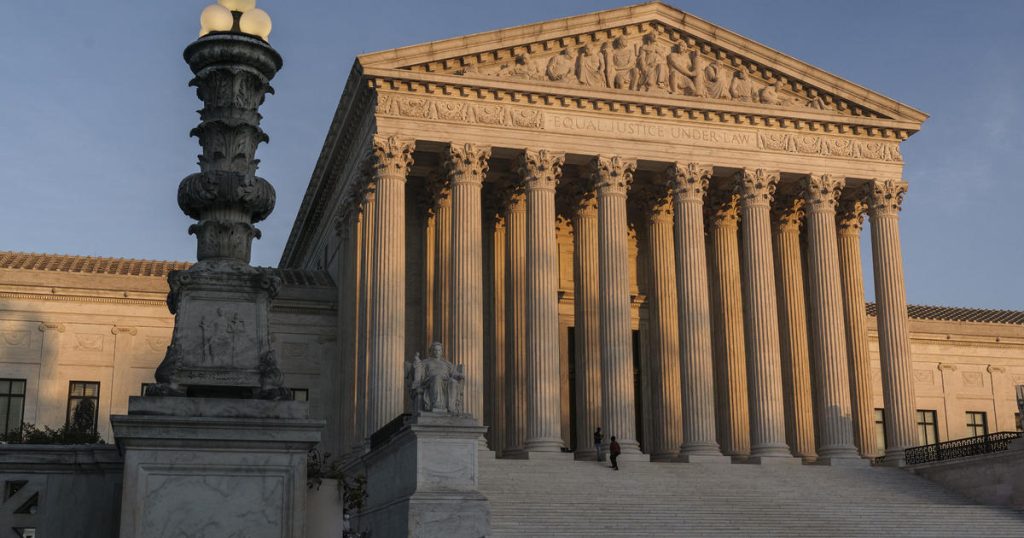The Supreme Court has decided to uphold an Arizona law that requires proof of citizenship when registering to vote using a state-created form. However, enforcement of provisions requiring proof of citizenship to vote for president or by mail has been declined. The split decision partially rejects a request by the Republican National Committee and GOP state legislative leaders. The court granted Republicans’ request to put on hold a federal district court’s order that blocked the rule for registering voters while pursuing an appeal.
Arizona is considered a key battleground state in the presidential election. The Supreme Court was asked to issue a stay by a specific deadline that would affect what appears on Arizona’s ballot. Republicans urged the court to halt an injunction that required the state to accept voter registration applications without proof of citizenship and allow voters who haven’t proved citizenship to cast ballots for president or by mail.
The Arizona voting requirements enacted in 2022 amended an existing state law that allowed residents to register to vote using either a federal form or a state-created form. The law requires registrants to provide proof of citizenship if their status cannot be verified, and those who fail to provide such proof are not eligible to vote in presidential elections or receive mail-in ballots. The law also tightens restrictions on eligible voters who submit state-provided voter registration forms.
The federal district court in Arizona permanently blocked state officials from enforcing the proof-of-citizenship requirements, leading Republicans to appeal to the U.S. Court of Appeals. The Supreme Court was urged to block Arizona’s restrictions on presidential elections and voting by mail, arguing they are preempted by federal election laws. Arizona officials, including Attorney General Kris Mayes, oppose a stay of the district court’s order, warning it would be destabilizing so close to the election.
The Arizona dispute marks the first involving the 2024 presidential election in which the Supreme Court’s intervention was sought. The case raises questions about the state’s ability to protect its elections and the power of Congress to displace state rules for registering to vote in presidential elections. State officials argue that a stay of the district court’s injunction would raise difficulties for state election officials registering voters using federal or state forms. Ultimately, the Supreme Court’s decision on this case will have implications for voter registration practices in Arizona and potentially nationwide.


